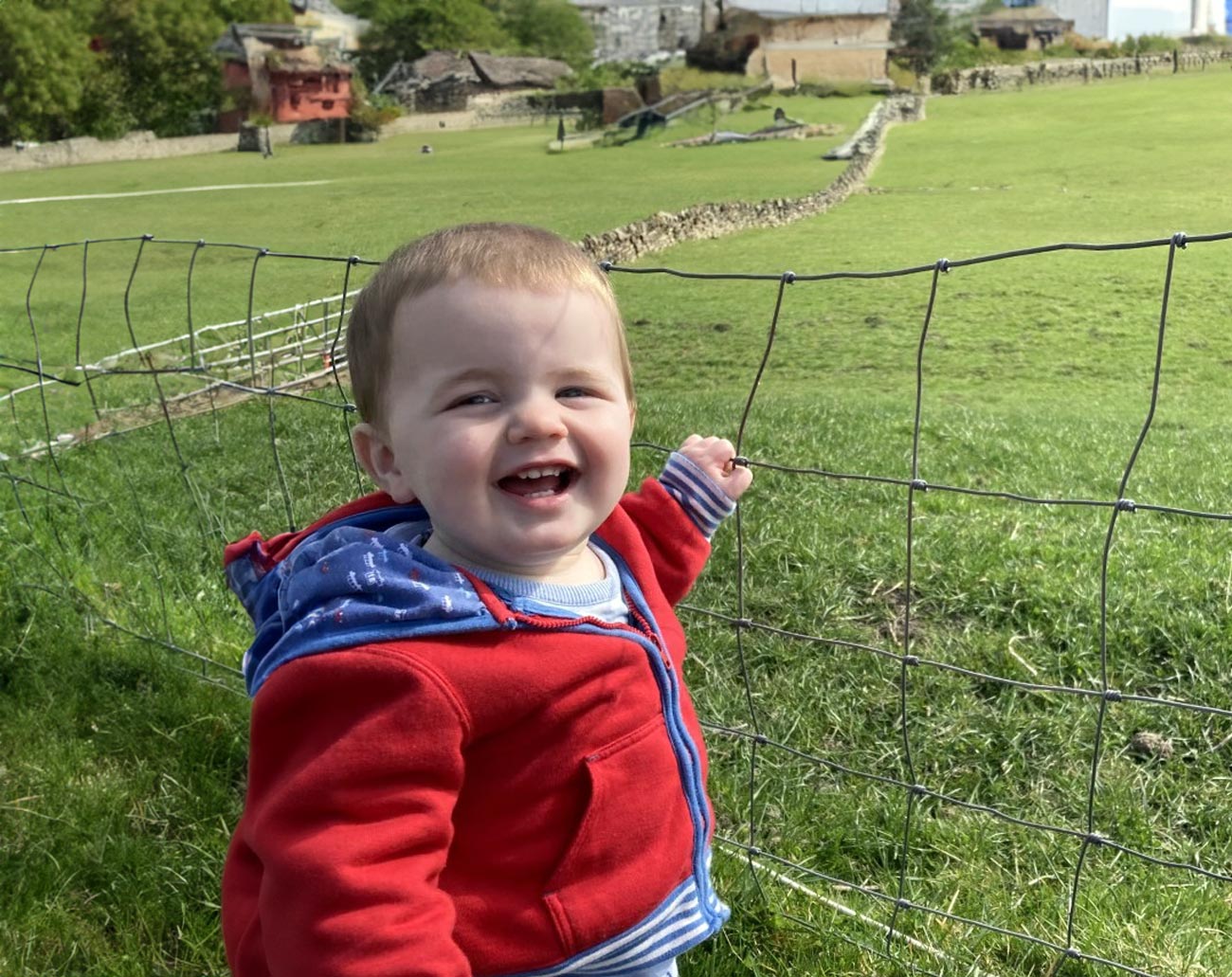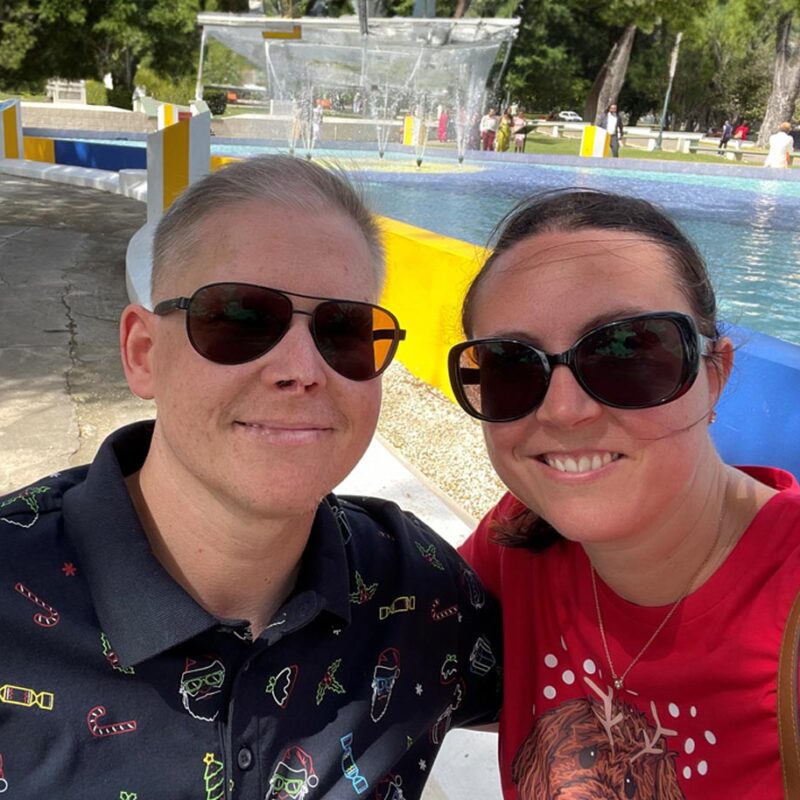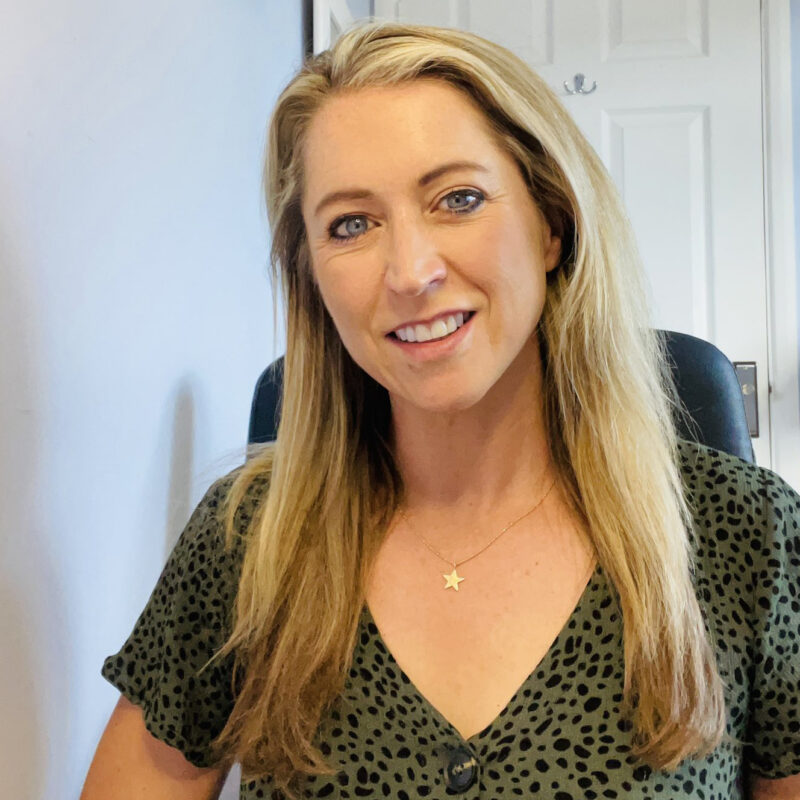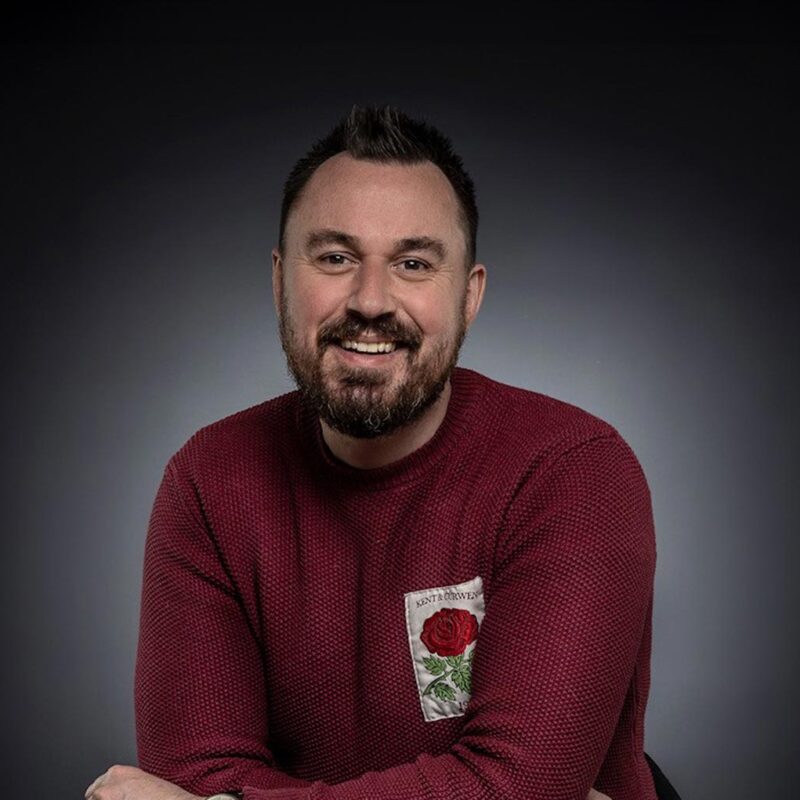Special needs teacher Helen and Sheffield Hallam University Project Support Coordinator Daniel Philliskirk tragically lost their 16-month-year-old son James to sepsis in May 2022.
They took him to Sheffield Children’s Hospital on multiple occasions but were dismissed by doctors and told he had chicken pox – but a postmortem examination found that he had developed sepsis after a Strep A infection. They have shared their family’s tragic story of loss to help make other parents aware of the signs of sepsis and to urge healthcare professionals to listen to patient voices.
James had contracted chickenpox in April 2022, and initially, his symptoms were typical for a child with the illness. However, three weeks later, James became more unwell, displaying signs of irritability, refusal to eat, making groaning noises, and a regression to a newborn-like state. Despite a visits to the GP and multiple visits to Sheffield Children’s Hospital, the medical professionals at the hospital insisted it was chickenpox, prescribing treatments like antihistamine drops. Helen said: “Normally he was such a cheeky little boy and would climb everywhere, was very independent and we lost all of that. He lost all of his personality. He lost his love for life and he couldn’t do anything himself.”
Daniel took him to the hospital the first time. He said: “I wish I’d been more assertive and asked for a second opinion. At the time, I didn’t realise how junior the doctor was, and probably would have asked for someone a bit higher if I’d have known that.”
Doctors remained adamant it was chickenpox, and James continued to deteriorate, becoming lethargic and losing his usual cheery demeanour. Helen said: “We couldn’t understand why everyone was telling us it was chicken pox and nobody seemed to want to explore any other possibility.”
The couple sought further advice by calling 111 who were concerned about his groaning sound so directed them to return to Sheffield Children’s Hospital within the hour. Even with a new diagnosis of a sore throat, the medical team maintained their stance, prescribing sore throat spray and advising his parents to give James Calprofen – despite this going against chickenpox treatment advice.
Helen wants Martha’s Rule to be implemented not just in England, but in Ireland, Scotland and Wales too, so that parents like her and Daniel are more empowered to seek a second opinion. Helen also added that hospitals should recognise a parent seeking medical attention multiple times in a day as a cause for concern:
“James had never been in hospital, and that day we got medical advice four times within six hours, which is massive, and that didn’t give the hospital any alarm bells.”
“Just trust your gut; you know your child best,” said Helen. “I think people would always rather see children and verify that they are healthy or verify that things are OK rather than people be at home worried and things get missed and ultimately lead to very unwell children or sadly, children dying.”
The family also received no information regarding what ‘worse’ would look like – including the knowledge to watch out for dehydration, as wetting fewer nappies than normal is a sign of sepsis that James’ parents were not aware of at the time. Daniel said: “One other thing I would advise parents of or anyone attending hospital really, is to make sure they get written safety netting advice when the leave, be that electronic copy or hard copy, just so that they know the signs and the signals of things to look out for as we didn’t receive any.”
After returning home, James’s condition continued, and he tragically passed away at home the following evening. His parents found him in his cot, and despite performing CPR, were unable to revive him. Due to the unexpected nature of the death, they were visited by South Yorkshire Police – who Helen is now working with to ensure they treat parents who have suddenly lost a child with greater empathy. She is also working with South Yorkshire Ambulance service to improve how the deceased belongings are handled, after some of James’s clothes were destroyed.
Daniel stresses how difficult it was to adapt to being the busy parent of an energetic toddler, to suddenly having a massive void in their life – while continuing to parent James’ older brother.
The family held a celebration at a farm in memory of James rather than a traditional funeral, as a testament to the bubbly little boy he was. Daniel recalls his amazing, cheeky and lovable grin. He said:
“He was just like this little bundle of energy and always doing something, always really busy babbling and trying to talk to people. And he loved his big brother; loved spending time with him.”
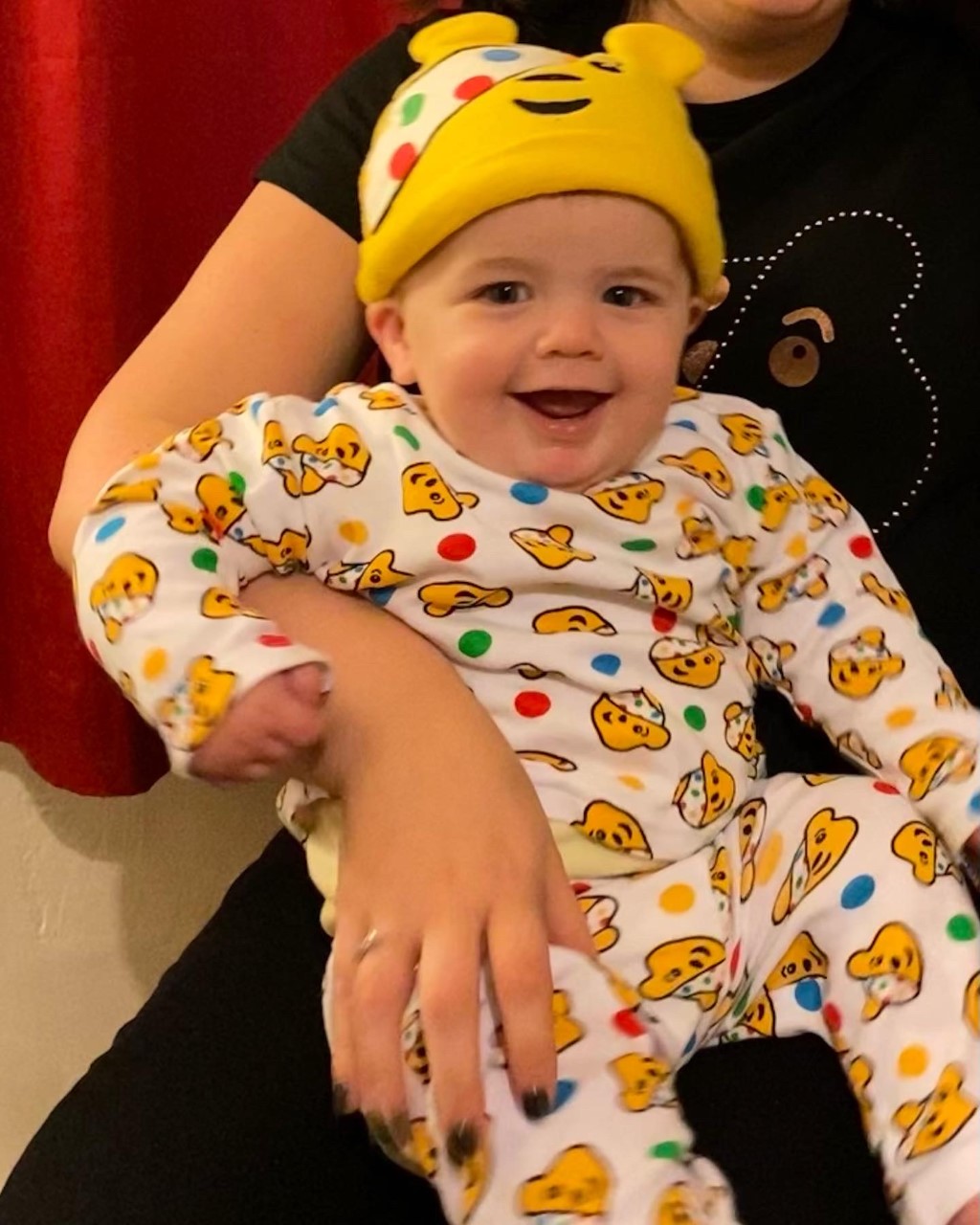
Helen said: “I just loved his character. He was so strong, determined and independent, and even though he was sixteen months, he was pretty much in charge of our house and he’d got so many toys in the house, but what he loved doing was swiping coasters off our side tables.”
A long, agonising wait for James’ inquest meant that the family were stuck in limbo – unable to begin to process their grief until they had answers. Helen said: “It was a very difficult year, and difficult doesn’t seem to be a strong enough word; there had to be a serious investigation by Sheffield Children’s Hospital before we could have the inquest, and it was a very long process. It was drawn out, there were extensions, and that was really difficult because that delayed the inquest.”
An inquest is supposed to take place within 6 months of the deceased’s passing, but James’ was 49 weeks after his death, making it near the anniversary of when his parents lost him. That’s when they reached out to the UK Sepsis Trust for support. Helen said:
“I was so grateful for speaking with Katie, one of the sepsis nurses, because she gave us such practical support for the inquest.”
They also spoke to Merope Mills, who has spearheaded calls for Martha’s Rule, after her own daughter’s tragic and preventable death. Helen said: “That was the first time we encountered the medical professionals that encountered James on his attendance at the hospital and even being in the same room and seeing them again, it’s really hard. There’s so many emotions, so much you want to say, but you need to follow the court processes and there was a jury who had to make the conclusions of what happened to James.”
Eventually, after a long and emotionally taxing process, the jury found that neglect by the hospital contributed to James’s death. That was the first moment that Helen allowed herself to cry in court that week. She said: “That was massive, and I think we’re still digesting that conclusion now. I think deep down throughout the entire year, we knew that they messed up, we knew that they failed James, but to hear other people who are completely unbiased and completely independent of either us or the hospital find that as fact is humongous and scary.”
After the inquest, the family have continued to access support to help process their grief; Helen accesses UKST’s online support groups, as well as having 1:1 calls with Katie, while Daniel has had counselling and uses the online tools and advice to dip in and out of support when he feels he needs it. Helen said: “For me, it’s quite beneficial to hear how people are who are ahead of me in this journey and how their lives are now. It helps to give me hope and it also helps me knowing that if I share anything that happened with James to the people that are almost a bit behind us in this journey, it might help them with their experiences too.”
Now, Helen and Daniel are using their family’s tragic experience to help raise awareness among other parents and to improve sepsis outcomes for other patients. They both expressed their frustration with the medical professionals’ refusal to consider alternative possibilities. They emphasised the need for parents to trust their instincts, seek second opinions through the forthcoming implementation of Martha’s Rule, and be assertive in advocating for their child’s health.
In terms of advice to other parents who may tragically find themselves in a similar situation, Daniel stresses the importance of seeking free legal advice and encourages people to accept support from family and friends during challenging times. Helen wants others to know the value of practical help, such as providing food, and expresses the desire for others to continue talking about their son, sharing memories, and acknowledging important milestones to keep their memory alive. Daniel said: “Don’t be scared to talk to someone about their child or their loved one that’s passed away.”
James’ family have undertaken a list of 16 goals which they are aiming to complete in his memory; this includes opening a new climbing frame at his former nursery, installing a bench at Bole Hill park in Sheffield, and a plaque at The Deep in Hull. Helen said: “It will take us a while and we’re in no rush to complete them because hopefully me and Daniel will have long and happy lives and so will his older brother and we want to include his brother in making decisions about things we can do in James’ memory, and we want to give people places that they can visit and think of James, and it also helps us be connected to those people.”
